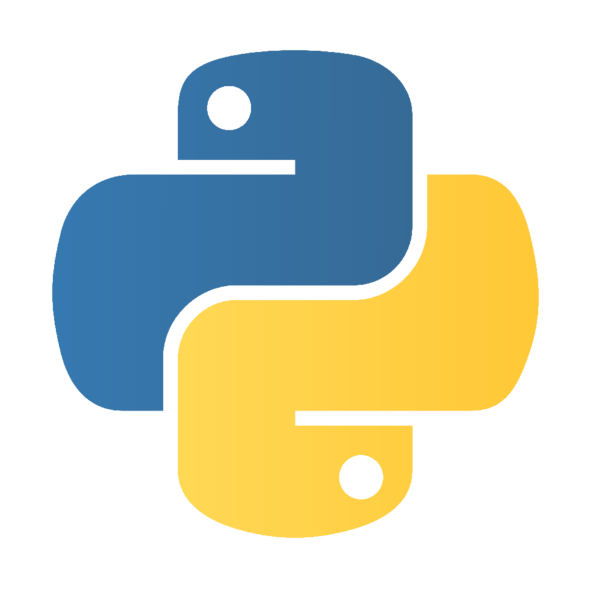
- Payment Options:
Subscription R2,500 pmSelf-paced R6,500
- Inlcudes:
- Exam Fee: No
- Labs: Yes
- Test Prep: Yes
- Mentor Support: Yes
Subscription Plan: This plan provides not only access to our extensive course catalog but also dedicated mentorship for content mastery and effective career planning. Please note, course completion is required before starting a new one, ensuring a solid grasp of material. The plan requires an initial R2,500 deposit, reflecting our commitment to quality education. You may cancel anytime with a month's notice. Start your learning journey today!
Self-paced: Unlock your learning potential with our one-time payment option. This plan offers you access to comprehensive training manuals and supplemental materials for a period of up to 12 months, empowering you to learn at your own pace. While this option does not include mentor support, our dedicated career advisors remain readily available to guide you. Make a single investment to revolutionize your learning experience and open doors to new possibilities.
Python Fundamentals
Ready to embark on a coding adventure with the world's most versatile language? Introducing The Python Institute's Certified Entry-Level Python Programmer (PCEP) certification – your gateway to mastering Python basics and launching a coding career.
Course Objectives
The Python Fundamentals Certification is designed to provide you with a solid understanding of the core concepts and syntax of Python, setting the stage for your coding endeavors. This certification is your gateway to:
- Basic Concepts
- fundamental concepts: interpreting and the interpreter, compilation and the compiler, language elements, lexis, syntax and semantics, Python keywords, instructions, indenting
- literals: Boolean, integer, floating-point numbers, scientific notation, strings
- comments
- the print() function
- the input() function
- numeral systems (binary, octal, decimal, hexadecimal)
- numeric operators: ** * / % // + –
- string operators: * +
- assignments and shortcut operators
- Data Types, Evaluations, and Basic I/O Operations
- operators: unary and binary, priorities and binding
- bitwise operators: ~ & ^ | << >>
- Boolean operators: not and or
- Boolean expressions
- relational operators ( == != > >= < <= ), building complex Boolean expressions
- accuracy of floating-point numbers
- basic input and output operations using the input(), print(), int(), float(), str(), len() functions
- formatting print() output with end= and sep= arguments
- type casting
- basic calculations
- simple strings: constructing, assigning, indexing, slicing comparing, immutability
- Flow Control – loops and conditional blocks (20%)
- conditional statements: if, if-else, if-elif, if-elif-else
- multiple conditional statements
- the pass instruction
- building loops: while, for, range(), in
- iterating through sequences
- expanding loops: while-else, for-else
- nesting loops and conditional statements
- controlling loop execution: break, continue
- Data Collections – Lists, Tuples, and Dictionaries
- simple lists: constructing vectors, indexing and slicing, the len() function
- lists in detail: indexing, slicing, basic methods (append(), insert(), index()) and functions (len(), sorted(), etc.), del instruction, iterating lists with the for loop, initializing, in and not in operators, list comprehension, copying and cloning
- lists in lists: matrices and cubes
- tuples: indexing, slicing, building, immutability
- tuples vs. lists: similarities and differences, lists inside tuples and tuples inside lists
- dictionaries: building, indexing, adding and removing keys, iterating through dictionaries as well as their keys and values, checking key existence, keys(), items() and values() methods
- strings in detail: ASCII, UNICODE, UTF-8, immutability, escaping using the \ character, quotes and apostrophes inside strings, multiline strings, copying vs. cloning, advanced slicing, string vs. string, string vs. non-string, basic string methods (upper(), lower(), isxxx(), capitalize(), split(), join(), etc.) and functions (len(), chr(), ord()), escape characters
- Functions
- defining and invoking your own functions and generators
- return and yield keywords, returning results,
- the None keyword,
- recursion
- parameters vs. arguments,
- positional keyword and mixed argument passing,
- default parameter values
- converting generator objects into lists using the list() function
- name scopes, name hiding (shadowing), the global keyword
Who Should Pursue This Certification?
The PCEP certification is perfect for coding newcomers, students, and enthusiasts keen on Python fundamentals. Whether you're a programming novice exploring coding's allure or a tech enthusiast ready to embrace Python's versatility, this certification is your starting point. No prior programming experience is necessary.
🔥Benefits and Beyond:
Upon certification, you'll possess a strong foundation in Python programming, enabling you to create basic scripts and applications. The PCEP certification not only showcases your coding skills but also positions you for further Python specialization and career opportunities in various tech domains.
Unleash your coding potential – embrace The Python Institute's Certified Entry-Level Python Programmer certification and venture into the world of Python programming, where endless coding possibilities await. 🐍🚀
Please contact us for any queries via phone or our contact form. We will be happy to answer your questions.
Ferndale,
2194 South Africa
Tel: +2711-781 8014 (Johannesburg)
+2721-020-0111 (Cape Town)
ZA
Jumping Bean Contact Form!